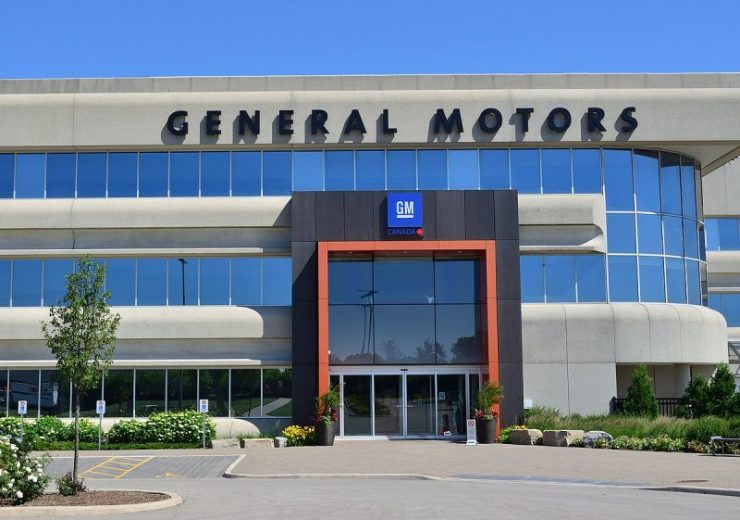Company fast tracking plans to construct two battery cell manufacturing facilities in the US by 2025

An office of General Motors in Canada. (Credit: Raysonho @ Open Grid Scheduler / Scalable Grid Engine / Wikimedia Commons)
General Motors (GM) has boosted its investments in electric vehicles (EVs) and automated vehicles (AVs) to $35bn for the 2020-2025 period, which is a 75% increase from its initial commitment made before the pandemic.
In March 2020, the American vehicle manufacturer had initially committed an investment of $20bn from 2020 through 2025.
The investment was allocated towards capital, engineering expenses, and other development costs, and for speeding up its move to EVs and AVs.
Subsequently, in November 2020, just ahead of the pandemic, the company had ramped up its planned investment for the same period to $27bn.
The American vehicle manufacturer claimed that its increased investments will expedite its transformative strategy to enable it to lead the market for EVs in North America.
Besides, it is said to help the company become a major force for battery and fuel cell technology in the world through its Ultium battery platform and Hydrotec fuel cells, and also through its investment in self-driving start-up Cruise.
General Motors chair and CEO Mary Barra said: “We are investing aggressively in a comprehensive and highly-integrated plan to make sure that GM leads in all aspects of the transformation to a more sustainable future.
“GM is targeting annual global EV sales of more than 1 million by 2025, and we are increasing our investment to scale faster because we see momentum building in the United States for electrification, along with customer demand for our product portfolio.”
General Motors said that it is fast-tracking plans to construct two new battery cell manufacturing facilities in the US by 2025. The two plants will complement the Ultium Cells’ plants that are being constructed in Tennessee and Ohio.
Earlier this week, General Motors forged a partnership with Wabtec for developing and commercialising its Ultium battery technology and Hydrotec hydrogen fuel cell systems for the latter’s 100% battery-powered locomotives.
Under a separate agreement, the company will supply Hydrotec systems to Navistar for its hydrogen-powered heavy trucks and also to Liebherr-Aerospace, which is building hydrogen-powered auxiliary power units for aircraft.
General Motors also said that the increased investments will allow it to plan the manufacturing of new electric commercial trucks and other products and also in deploying Cruise’s self-driving technology at scale.


